Some Concluding Thoughts on Kigali by Bob Wood
Please go here to access Mr. Woods’ and Angelina’s Uganda / Rwanda 2015 Summer Travel series.
It’s funny, when you think about traveling in East Africa or anywhere really in sub Saharan Africa, people just assume third world poverty, crumbling infrastructure, unstable governments, chaos and crime, and now terrorism. Kigali, Rwanda blows away all of those stereotypes.
I haven’t found a list of the world’s most amiable walking cities, but if Kigali isn’t on it, then that list is just plain wrong. As much of a chaotic crapshoot as was Kampala and Uganda, the difference between the Rwandan and Ugandan capital cities is night and day. At the Rwandan border when we first entered the country and agents shuffled through our vehicle – same as they do in the USA from Mexico or Canada – we got our first atypical introduction to Rwanda public policy. They confiscated plastic bags. PLASTIC BAGS! Plastic bags are illegal in Rwanda. Litter is almost non existent in Kigali.
Kigali roads are wide and well maintained. Sidewalks are huge – six to eight feet, up to twenty or thirty where storefronts are included and alongside all of the main streets; and NO Michigan pot holes. The city is one giant vista; rolling hills; eleven of them ring Kigali and swing into town. …so you walk, and walk, and walk – I lost sixteen pounds this summer. Fifteen of it had to be on those Kigali Hills. The streets are safe day or night. Cops, many with firearms & tactical equipment in toe, are plentiful. Stop lights, unlike in Uganda, matter. And people follow the rules.
Probably the most clear example of the difference between the two capitals…is the motor cycles that swarm the city streets – the modas (Rwanda) and the bodas (Uganda), serve as personal taxis through out each of the two main hubs. But the way they do it is light years difference. There wasn’t a chance on earth that I was going to hop one of those cycles in Kampala. The traffic is wild – one way, wrong way, pass on the left, pass on the right, over the top, underneath – it doesn’t matter. Nobody cares. No helmets. No rules. No limits. In Kampala you might find an entire family of four piled up on a single motor cycle – with baby sitting on the gas tank or the handle bars. It isn’t at all odd to see a driver carrying a bed on up against his back as he maneuvers traffic. While it was great viewing entertainment, I did not have the courage to participate.
Kagali is an entirely different story. One passenger, two people (driver included) and traffic laws obeyed. Helmets (driver and passenger) required. We went everywhere we didn’t walk, via motorcycle in Kigali. It was so much fun – and cheap. Raise your hand anywhere on the side of the road – and whoosh six modas fly in “Where to?” Twenty minutes across town was a buck. And all of the guys – and they are all guys – were helpful. I think they loved being mods drivers. Go here for a music video (my first ever) of a Kigali moda ride – our exit from the Iris Guesthouse to the Kigali Bus station. Just an average day on the streets of Kigali. Check out the streets and the sidewalks, folks going about their daily business, the landscape of the city and Angelina’s exchange with the driver at trips end. It’ll give you a good look at Kigali.
Night time in Kigali was sweet. At the Iris, up near the French Embassy, streets were beautiful, quiet, and leafy. And safe; always safe. If you haven’t read the blog post on the Iris please go here. The experience of Kigali just flies in the face of common thought of sub Saharan African cities. It is such an ordered, “follow the rules” place. Now, that doesn’t mean that I preferred it, or Rwanda to Kampala or Uganda, because I didn’t. I don’t. I loved Uganda. What Kigali does however, is torpedo every single possible stereotype of third world chaos that is fostered in the West.
And still Africa is present. You find road side sales of fruits and vegetables. Mangos, avocados, bananas, are always within reach and less than a buck a handful, just not like on every single corner as in Uganda. These sales are not government sponsored in Rwanda. Which means that things are a little more impromptu; whenever the cops aren’t around. In Uganda, I was told over and over again, government stays out of people’s affairs. They let you do what you need to do, to make a buck. Everybody owns a business and sets it up it seems wherever they please. In Rwanda the government does pay attention to people’s affairs. Very close attention.
Rules dominate Kigali. People follow the rules, the stop-lights, and litter laws. It’s odd…and it makes you think that maybe that is why people did their job so effectively during the genocide. The rallying cry, “Get to Work”, “Do your Duty” inspired massive citizen participation in the genocide. People follow the leader in Rwanda. It also is why the West and China are currently racing to fund highway projects all over the state. Only twenty years out from total collapse, and Rwanda has once again become the darling of Western investment. European NGO’s are all over the place – and Chinese road crews flourish; whether with Chinese labor that huddles at their own camp residence ten miles outside of the project or a slew of Rwandan workers, supervised by a chain smoking Chinese foreman hovering over the crew, China is way out in front of the West in its African presence. Investment is flowing into Africa. East or West, capitalists setting up shop in third world countries like rules, they like traffic lights, they love order in the streets…be they Chinese, European, or American corporations or governments or NGO’s – Rwanda is ground zero.
I cannot believe that the events of 1994 could ever again be perpetrated in Rwanda. Western guilt alone, would (and should) pull the plug. In addition, the more economic development that comes here, the more the West and China sink dollars and yuan and euros into sub Saharan Africa, the less chance they will walk away from that investment. The more Western investment, the stronger the Rwandan economy, the better the quality of life, and the less chance that this quiet and quaint Kigali will again swirl to Armageddon…
Like it did only twenty years ago.

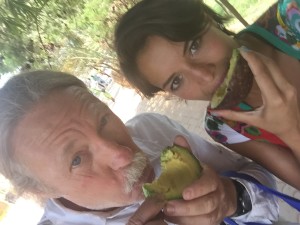

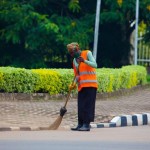
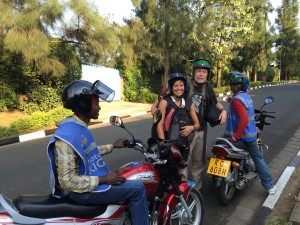
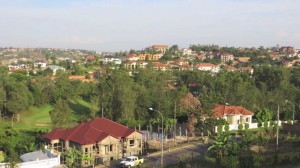
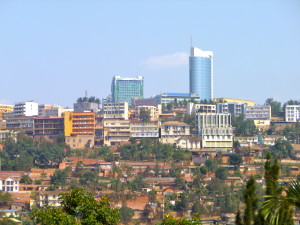
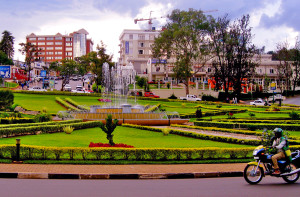
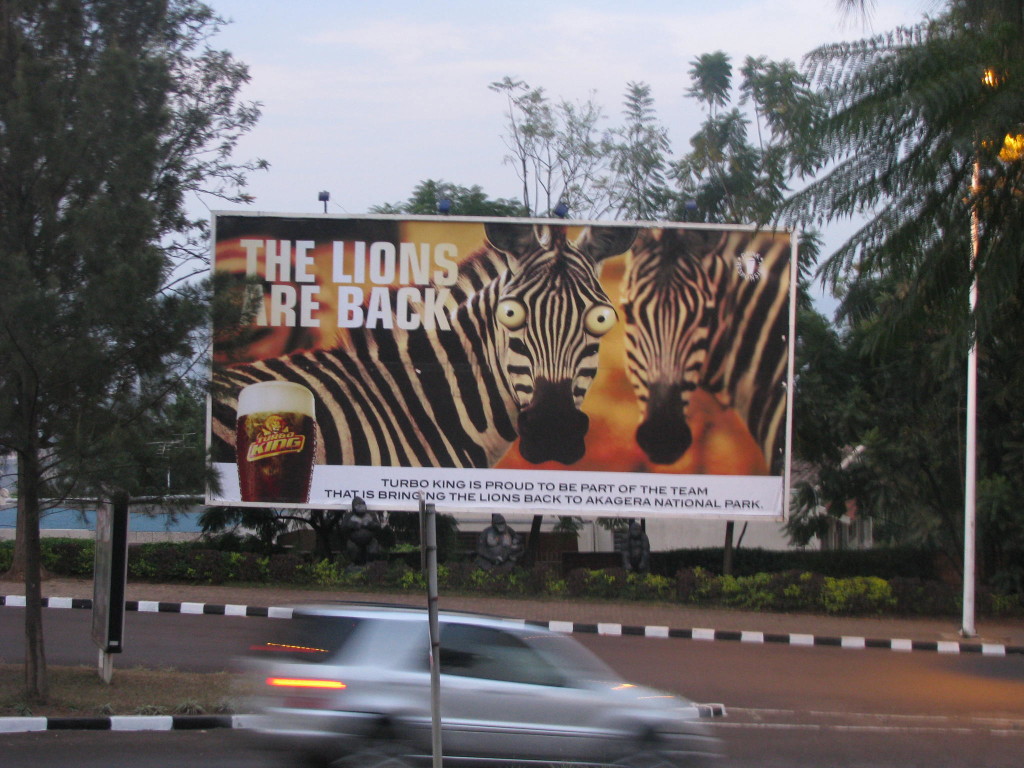
















































































































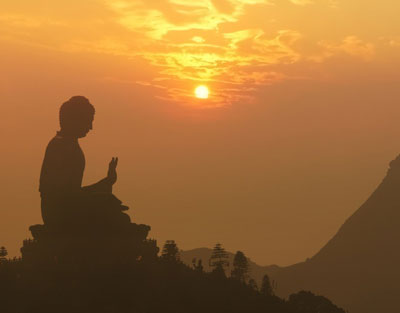
I find your reflections to be very thoughtful. Thank you for sharing them. Please read Shadow of the Sun by Kapuscinski.